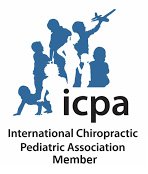As we journey through life, our bodies experience a multitude of transformations, and as we age, one such change involves a gradual reduction in muscle mass, coordination, and balance. Unfortunately, these shifts contribute to an elevated vulnerability among seniors when it comes to falls and associated injuries. Nonetheless, armed with the right knowledge and preventive actions, many of these falls can be averted.
In this article, we’ll present seven indispensable tips tailored specifically to seniors and caregivers who hold a crucial role in safeguarding the safety and overall welfare of older adults. By implementing these recommendations, you’ll be well-equipped to prevent falls and nurture a secure environment for seniors to thrive.
1. Stay Active and Exercise Regularly
Engaging in regular physical activity and exercise can significantly improve muscle strength, coordination, and balance. Seniors should consult with their healthcare providers to develop a safe and suitable exercise routine that includes activities like walking, tai chi, or yoga. These exercises help enhance flexibility, stability, and overall physical well-being, reducing the risk of falls.
2. Modify the Living Environment
Creating a safe living environment is crucial for fall prevention. Ensure that floors are clear of clutter, loose rugs, and obstacles that could cause tripping hazards. Install handrails and grab bars in critical areas such as bathrooms and staircases. Adequate lighting in all areas of the house is essential to help seniors see obstacles and potential hazards more clearly.
3. Wear Proper Footwear
Wearing appropriate footwear is essential for maintaining balance and stability. Seniors should opt for shoes that provide good support, have a non-slip sole, and properly fit their feet. Avoid wearing high heels, flip-flops, or shoes with slippery soles, as they increase the risk of falls.
4. Review Medications Regularly
Certain medications can affect balance and increase the risk of falls. Seniors should regularly review their medications with their healthcare providers to identify any potential side effects that may impact balance or coordination. It’s crucial to follow medication guidelines and be aware of any interactions or adverse effects.
5. Optimize Nutrition and Hydration
A well-balanced diet plays a significant role in maintaining overall health and reducing fall risks. Seniors should consume adequate amounts of calcium and vitamin D to support bone health. Staying hydrated is also crucial, as dehydration can lead to dizziness and compromised balance.
6. Regular Eye Examinations
Declining vision can significantly impact balance and increase the risk of falls. Seniors should have regular eye examinations to monitor their vision and address any visual impairments promptly. Wearing appropriate eyeglasses or contact lenses as prescribed is essential for maintaining clear vision and reducing the risk of accidents.
7. Use Assistive Devices
Depending on individual needs, seniors may benefit from using assistive devices to maintain stability and prevent falls. Canes, walkers, and grab bars can provide additional support and aid in maintaining balance during daily activities. It is important to consult with a healthcare professional to determine the most suitable assistive devices for each individual.
8. Seek Out Fall Prevention Strategies with Chiropractic Care
Preventing falls among seniors is crucial for maintaining their independence, well-being, and overall quality of life. By following these seven essential tips, seniors and caregivers can take proactive measures to reduce the risk of falls and fall-related injuries.
If you or your loved one requires additional guidance or professional assistance in fall prevention and overall health, consider reaching out to Keystone Chiropractic, your trusted Plano chiropractor. Book your appointment today to take proactive steps today to ensure a safer and healthier future for seniors.





